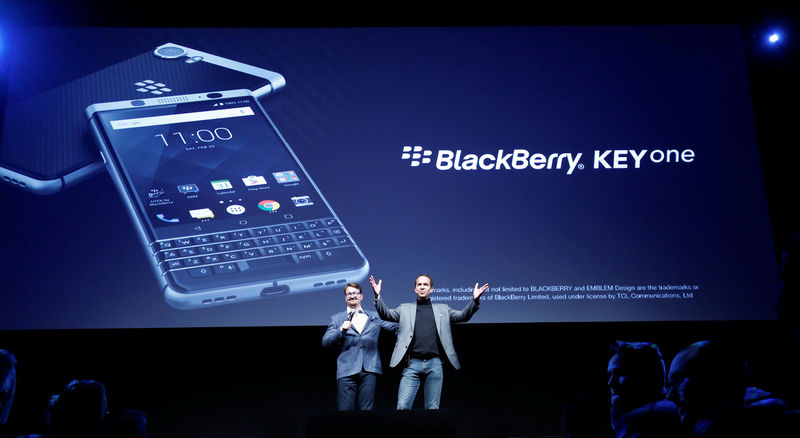By Alastair Sharp
TORONTO (Reuters) - BlackBerry Ltd shares (TO:BB) (O:BBRY) surged to a four-year high in Toronto on Tuesday, extending a two-month rally spurred on by expectations for strong growth in the fast-expanding cyber security and automotive software markets.
The Canadian shares climbed as much as 9.4 percent to C$15.34. As of early afternoon, volume was at about 3 million shares, nearly triple the full-day three-month average.
The rally followed an announcement by Ford Motor Co (N:F) on Friday that the automaker planned to start updating software on its vehicles using a wireless system to enhance security based on BlackBerry technology.
BlackBerry's U.S.-listed shares gained more than 9 percent on Monday, when Canada's stock market was closed for a holiday.
Ford's Sync 3 interactive system for cars runs on BlackBerry's QNX operating system, which is capable of delivering software updates "over the air."
Some investors believe that Friday's announcement from Ford is a sign that QNX will be more broadly adopted in the auto industry as other automakers start updating their cars using the relatively new over-the-air approach, analysts said.
"BlackBerry is well positioned at the epicenter of this transformation," CCS Insight analyst Nicholas McQuire told Reuters.
McQuire and other analysts also cited this month's global "ransomware" attack, dubbed WannaCry, with helping to raise BlackBerry's profile.
BlackBerry shares have climbed more than 60 percent since they reported stronger-than-expected earnings on March 31, which reinforced expectations that the company is succeeding in re-inventing itself after the collapse of a smartphone business that was once the market leader.
The rally gained steam in mid-April on news that BlackBerry had won a binding arbitration forcing chipmaker Qualcomm Inc (O:QCOM) to pay it back almost $1 billion.
"This chunk of change from Qualcomm has really changed investor sentiment on BlackBerry," said Canaccord Genuity analyst Michael Walkley.
Investors are betting that Chief Executive John Chen will use those funds to build up the company's cyber security and automotive software efforts and possibly make acquisitions related to its relatively new Radar tracking business, Walkley said.
Last week, an equity analyst with Macquarie reported that BlackBerry was working with two luxury automakers to develop a security service that would remotely scan vehicles for computer viruses.

The company does not break out cyber security revenue, though Walkley said it accounts for only a small percentage of its business, which remains focused on managing secure connections to mobile devices.
